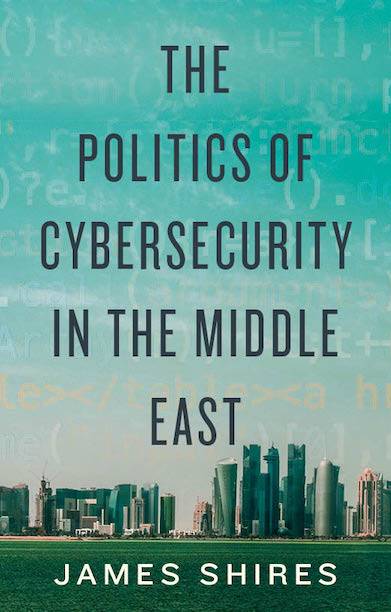The Politics of Cybersecurity in the Middle East
An original and comprehensive examination of the politics of cybersecurity in the MENA region.
Description
Cybersecurity is a complex and contested issue in international politics. By focusing on the ‘great powers’—the US, the EU, Russia and China—studies in the field often fail to capture the specific politics of cybersecurity in the Middle East, especially in Egypt and the GCC states. For these countries, cybersecurity policies and practices are entangled with those of long-standing allies in the US and Europe, and are built on reciprocal flows of data, capital, technology and expertise. At the same time, these states have authoritarian systems of governance more reminiscent of Russia or China, including approaches to digital technologies centred on sovereignty and surveillance.
This book is a pioneering examination of the politics of cybersecurity in the Middle East. Drawing on new interviews and original fieldwork, James Shires shows how the label of cybersecurity is repurposed by states, companies and other organisations to encompass a variety of concepts, including state conflict, targeted spyware, domestic information controls, and foreign interference through leaks and disinformation. These shifting meanings shape key technological systems as well as the social relations underpinning digital development. But however the term is interpreted, it is clear that cybersecurity is an integral aspect of the region’s contemporary politics.
Reviews
‘Ambitious and deeply insightful, Shires masterfully weaves together politics, technology and the Middle East to explain cyber security in a way that is far broader and more subject to the interests of state and non-state actors than many might imagine.’ — Cyber Security and Emerging Technologies, Survival
‘One of the best books about cybersecurity in the Middle East. Shires does a great job of unpacking how cybersecurity is used to further political and societal goals and the impact that this has on domestic and regional dynamics.’ — Joyce Hakmeh, Senior Research Fellow, Chatham House, and co-editor of the Journal for Cyber Policy
‘An ambitious yet deeply thoughtful treatment of the stark effects of moral maneuvers in cyberspace. Shires’ deft blend of culture, technology, and politics betrays a talent on the rise and offers compelling new insights.’ — Trey Herr, Director of the Atlantic Council’s Cyber Statecraft Initiative
‘Dr Shires masterfully weaves together three complex narratives–politics, cybersecurity, and the Middle East–into a policy-relevant analysis that provides insight into how and why governments use the cybersecurity domain to advance their interests.’ — Lauren Zabierek, Executive Director of the Cyber Project, Harvard Kennedy School
‘An excellent book. Shires does an admirable job of showing how decisions over the politics of cybersecurity have a real-world impact “on the ground.” Clear and compelling, it will appeal to scholars and policy practitioners alike.’ — Kristian Coates Ulrichsen, Fellow for the Middle East, Rice University
‘Shires’ book uses the concept of moral maneuvers to explore the relationship between values and norms within the cybersecurity community. There is little academic work on cybersecurity in the Middle East, so this is a unique contribution. Thorough, engaging and well written.’ — Marc Owen Jones, Assistant Professor of Middle East Studies, Hamad bin Khalifa University, Qatar, and author of Digital Authoritarianism in the Middle East
Author(s)
James Shires is Assistant Professor in Cybersecurity Governance at the Institute for Security and Global Affairs, Leiden University. He is also a nonresident fellow with the Cyber Statecraft Initiative at the Atlantic Council.






